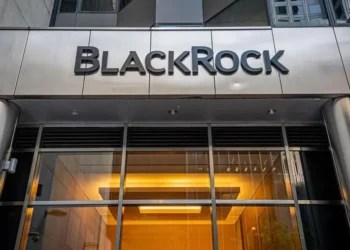Big banks have been helping United States Senators Roger Marshall and Elizabeth Warren draft their controversial anti-crypto bill.
In a Dec. 20 video that surfaced on X (formerly Twitter), Marshall admitted that he and Warren approached the largest lobbying organization for the U.S. banking industry — the American Bankers Association (ABA) — for assistance in crafting the Digital Asset Anti-Money Laundering Act.
Who could be so brazen as to write legislation that would effectively ban #crypto?
— Chamber of Digital Commerce (@DigitalChamber) December 19, 2023
Senator @RogerMarshallMD, the GOP frontman of the crypto ban bill, revealed the American Bankers Association wrote it. #StopCryptoBan pic.twitter.com/dHufIaXB7i
The Digital Asset Anti-Money Laundering Act, first introduced in December 2022, aims to bring crypto technology, such as noncustodial wallets, validators and mining pools, under strict banking regulations in the United States.
“The first thing that we did is that we went to the American Bankers Association and said ‘help us craft this.’”
Marshall also mentioned Warren’s meeting with JPMorgan CEO Jamie Dimon, who agreed that “crypto was only a tool for criminals.” The footage was sourced from a parliamentary security intelligence forum earlier in December.
In response to the video, Coinbase CEO Brian Armstrong expressed his disappointment that Warren and Marshall were now lobbying for banks. “Being anti-crypto is a really bad political strategy going into 2024,” he added.
Senators Warren and Marshall now lobbying for big banks
— Brian Armstrong ️ (@brian_armstrong) December 19, 2023
Being anti-crypto is a really bad political strategy going into 2024
* 52m Americans have used crypto
* 38% of young people say crypto can increase economic opportunities
* just 9% of Americans satisfied with the… https://t.co/diawa3LOX5
Meanwhile, finance lawyer Scott Johnsson suggested that voters angry at Warren should focus on vulnerable seats that have supported her crusade this past year.
On Dec. 11, the bill gained five new senators as co-sponsors, including three members of the Banking Committee. Moreover, U.S. banking advocacy group, the Bank Policy Institute (BPI), has also backed the anti-crypto legislation introduced by Warren.
Related: Warren’s surveillance legislation is tailor-made to help big banks
Anti-crypto commentators often claim that digital assets are mainly used for nefarious activity despite a wealth of evidence to the contrary. Blockchain analysis platform Chainalysis showed that less than 0.2% of crypto is used for illicit purposes.
Anti-crypto advocates also often fail to acknowledge the level of criminal activity in traditional finance, with JPMorgan being one of the most heavily fined banks. The Wall Street bank has paid almost $40 billion in fines for a wide range of violations since 2000, according to Violation Tracker.
Magazine: TradFi fans ignored Lyn Alden’s BTC tip — Now she says it’ll hit 7 figures: X Hall of Flame











